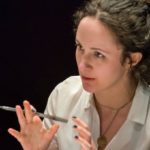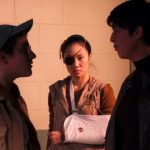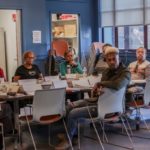
A discussion hosted by American Repertory Theater
The Dig - Greater Boston's Alternative News Source
Written by SHIRA LAUCHAROEN Filed Under: Performing Arts

A discussion hosted by American Repertory Theater
Written by SHIRA LAUCHAROEN Filed Under: Performing Arts

American Repertory Theater and their community partner explore the themes behind the production "Ocean Filibuster"
Written by DIG STAFF Filed Under: A+E, Performing Arts

Director Awoye Timpo is inspired by the storytelling traditions of Black rituals.
Written by SHIRA LAUCHAROEN Filed Under: Performing Arts

A comparative conversation about two famed works
Written by SHIRA LAUCHAROEN Filed Under: Performing Arts

A virtual performance of a science fiction tale
Written by SHIRA LAUCHAROEN Filed Under: Performing Arts

Explore the text behind this ArtsEmerson production
Written by SHIRA LAUCHAROEN Filed Under: Performing Arts

American Repertory Theater invites audiences to an inside look
Written by SHIRA LAUCHAROEN Filed Under: Performing Arts

The show is a modern retelling of Shakespeare's "Romeo and Juliet"
Written by SHIRA LAUCHAROEN Filed Under: Performing Arts

Samuel Beckett's writings are re-imagined for the stage
Written by SHIRA LAUCHAROEN Filed Under: Performing Arts

The Huntington Theatre Company invites guests to explore issues of racism and oppression
